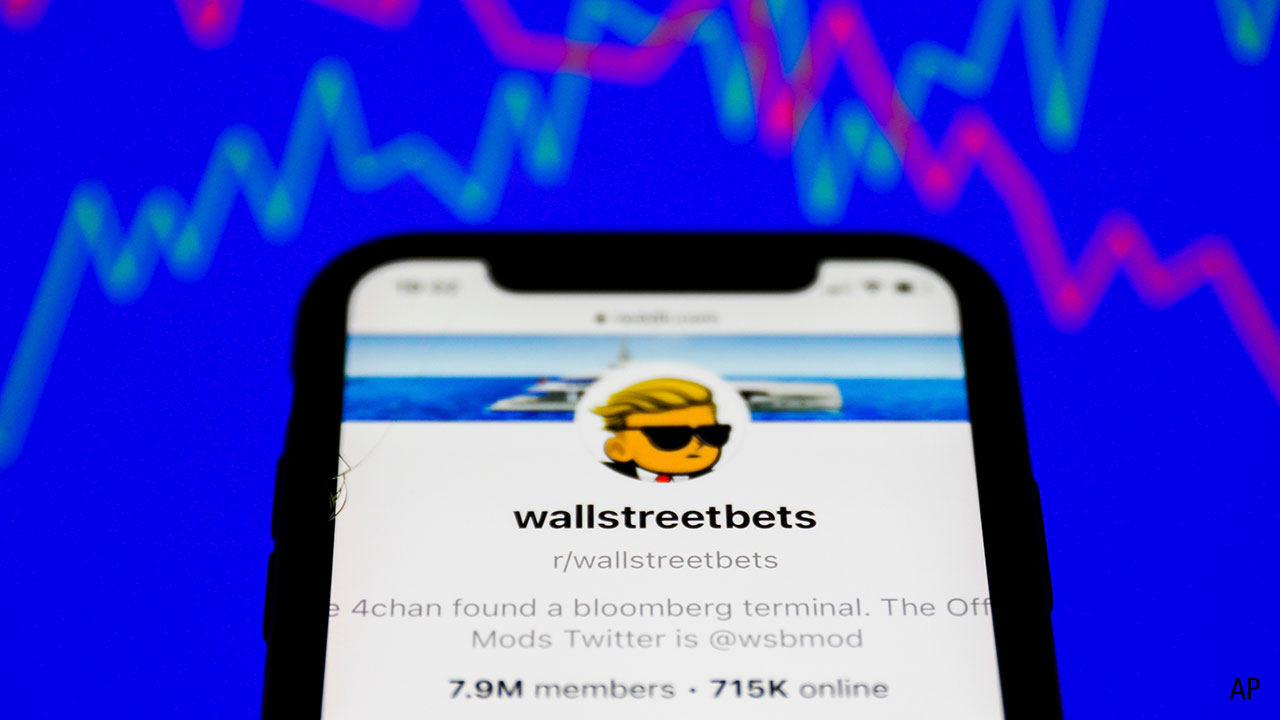
On January 1 this year, GameStop (GME) was a struggling bricks-and-mortar retailer, trying to adapt an antiquated model to a world that’s been living online for much of the past year, and to serve customers who are consuming more internet bandwidth and fewer video game cartridges. The company had lost money each of the past two years and was being pressured by investors - including Michael Burry of “The Big Short” fame - to get its act together.
Over the next few weeks, the company’s stock price spiked 2,484%, and it has subsequently plummeted nearly 90% from its January 28 intraday high of $483 per share. The story of what was briefly the world’s favourite “meme stock” has been spun every which way by the media. It was even fodder for a Saturday Night Live skit. And while it made for good theatre, what are investors to make of this drama?

There’s Nothing New Under the Sun
First, a history lesson is in order. What happened with GameStop and all the other stocks swept up in this nonsense has happened before, and it will happen again. GameStop has been added to a long list of short squeezes throughout history. Stocks with a large amount of short interest (the percentage of the companies’ shares that are being sold short by investors betting against it) are ripe for a squeeze. If these stocks’ prices rise, it puts pressure on short-sellers. As the stock price goes higher, shorts’ losses mount. Once the bears begin to cry uncle and buy back the stock to cover their short positions, their exodus pushes prices higher still. Short squeezes are at least as old as markets. Northern Pacific Railway (1901), Piggly Wiggly (1923), and Volkswagen (2008) are just a few historical exampless.
While short squeezes aren’t anything new, in the case of GameStop, the actors and methods were uniquely modern. In this instance, a contingent of vocal GameStop bears were forced out of their short positions by a merry band of self-described “degenerates.” The latter group’s base of operations was the social media platform Reddit, specifically the “WallStreetBets” community. They used this platform to rally together and squeeze out the shorts—and it worked. But the gains were short-lived. After the shorts headed for the hills, the ragtag group turned on itself and ultimately disbanded. GameStop’s share price crashed.
Why Don’t Trees Grow to the Sky?
One theory as to why trees don’t grow to the sky suggests that gravity is the limiting factor. The taller trees grow, the harder they have to work to overcome gravity to pull water through their roots and distribute it to their extremities. Gravity has a similar effect in stock markets, though it goes by another name: fundamentals. Economic growth, earnings growth, inflation - these are the fundamental forces that shape markets. Markets will often defy fundamentals during shorter time frames, but over the long-term there is no escaping them.
No amount of fervour from a swarming horde of “degenerates” would have been enough to push GameStop’s share price to escape velocity. While its stock has since come back to Earth, this episode is - in my opinion - symptomatic of a market that has likely decoupled from fundamentals, for now.
The below chart plots the cyclically adjusted total return price/earnings, or CAPE, ratio for US stocks and long-term interest rates going back to 1881. Measured by CAPE, stock valuations have rarely been more stretched. Only at the height of the tech bubble and shortly before the 1929 market crash did the CAPE ratio register higher than its February 2021 reading. Looking at US stocks through the lens of Morningstar’s price/fair value estimate yields a similar result. As of February 8, Vanguard Total Stock Market ETF (VTI) was trading at a price/fair value ratio of 1.09, indicating that US stocks were trading about 9 per cent above what they’re worth. Meanwhile, interest rates have never been lower.

What’s an Investor to Do?
I think the market is in the middle of a manic episode. I see anecdotal evidence to support this everywhere I look: the hoopla about meme stocks, the boom in special purpose acquisition companies (or SPACs, the so-called blank-check companies), Tesla (TSLA) buying bitcoin, teenagers dispensing financial advice on TikTok, and more. But I think the strongest evidence is the growing chorus singing a familiar tune: “This time is different.” The fact of the matter is that it’s never different. Historically high stock valuations and historically low bond yields aren’t fertile ground for future growth. So, what is an investor to do?
Everyone knows the classic Warren Buffett-ism about being greedy when others are fearful and fearful when they’re greedy. I love the symmetry of this saying. It is the contrarian investor’s playbook distilled down to its essence.
Over the past year, investors had the opportunity to be both greedy and fearful. Greed might have done many investors some good in early 2020, when fears surrounding the global pandemic surged and markets plummeted. But it was a brief scare--at least for markets. In fact, it was the shortest bear market in history. One year later, as some people are still living under lockdown, many markets are at all-time highs. Now may be the time to be a bit fearful.

I don’t think investors should try to time the market and call a top. I do suggest that now is a good time to take a close look at your portfolio and ask some simple questions: Are you comfortable with your asset allocation? After markets bounced back, stocks might represent a bigger piece of your portfolio. This might be an opportune time to rebalance. Have low yields pushed you into risky sectors of the bond market in search of income? With junk-bond yields recently touching all-time lows, I am skeptical that investors are being paid enough to take risks in that corner of the bond market, among others. It might be time to de-risk your fixed-income allocation.
Once you’ve reacquainted yourself with your portfolio and are comfortable with your asset allocations, your best bet is probably to walk away from it for a while. Late Vanguard founder Jack Bogle said, “The stock market is a giant distraction from the business of investing.” These words have never rung truer. In recent weeks the stock market has been a major distraction. Its movements have been influenced by newly minted retail investors looking for a distraction after months of leading virtual lives. The platforms they’re using to engage with each other are themselves distractions. If there’s ever been a moment to tune out all this noise and drop these distractions, I’d argue it is right now. If markets’ performance over the past year has taught us anything, it’s that inaction is often the best course of action.
If none of my suggestions seem exciting, that’s because they aren’t. For most of us, successful long-term investing is painfully boring, like watching paint dry and grass grow at the same time. But doing a whole lot of nothing might be the ultimate contrarian approach in a market that’s gone manic.





























